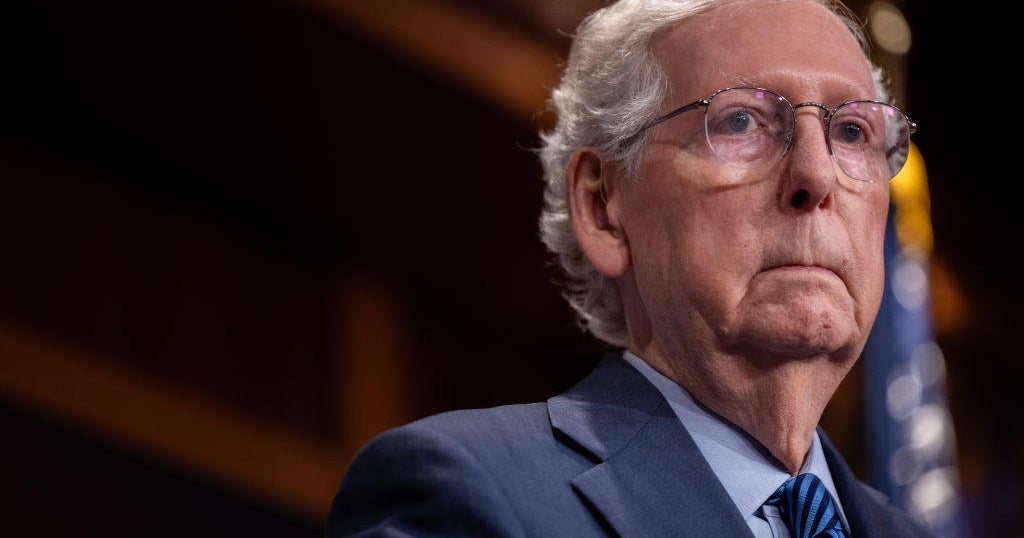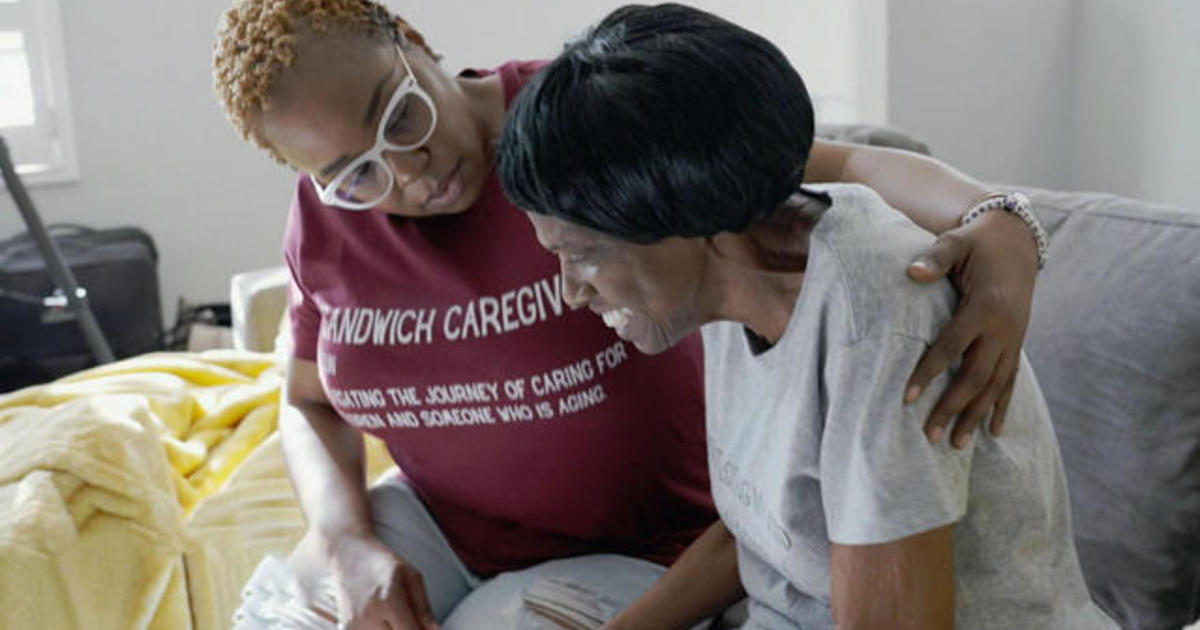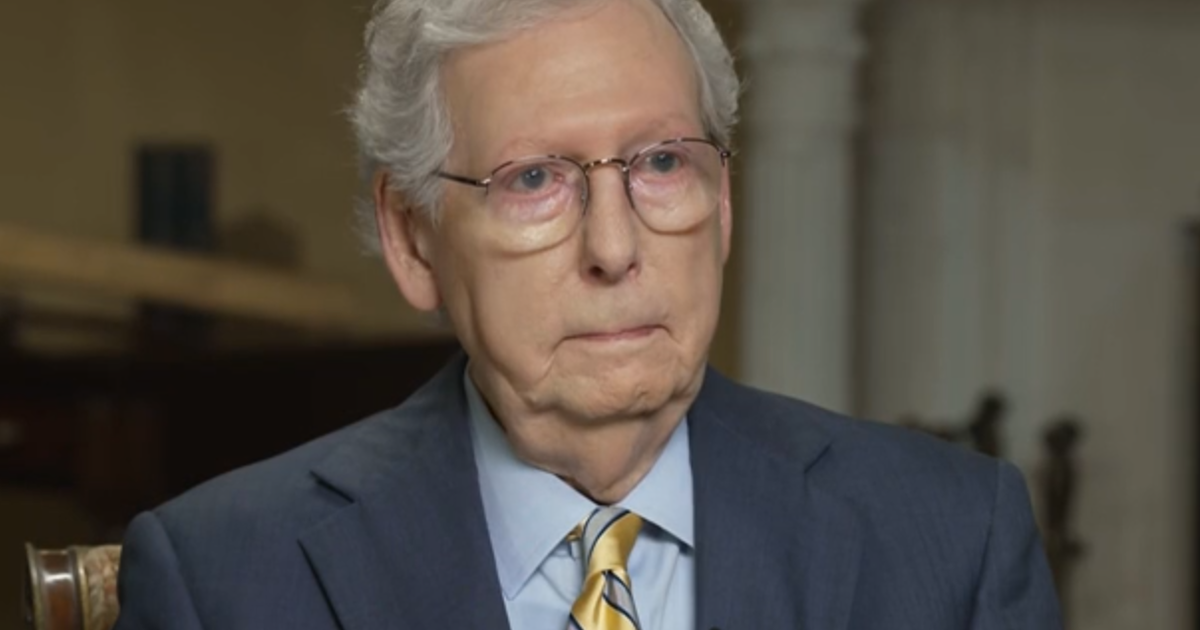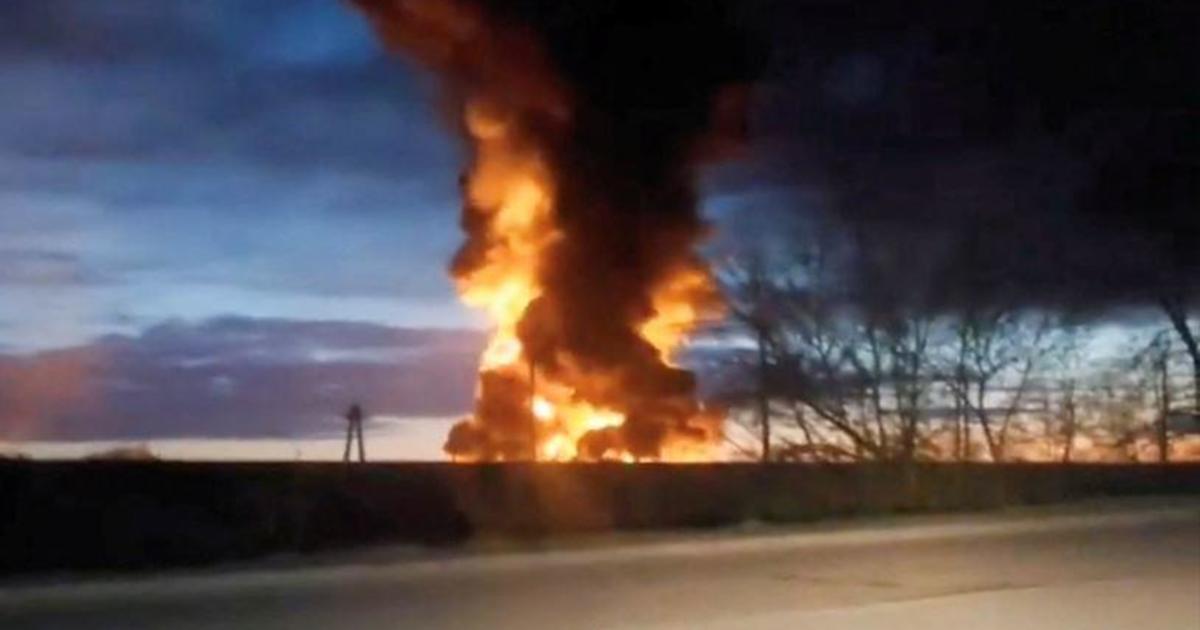Transcript: Dina Kawar, Jordanian Ambassador to the U.S., on "Face the Nation," Nov. 19, 2023
The following is a transcript of an interview with Dina Kawar, Jordanian Ambassador to the U.S., that aired on Nov. 19, 2023.
MARGARET BRENNAN: And we're going to turn now to Jordan's ambassador to the United States, Dina Kawar. Ambassador, good to have you here in person.
AMBASSADOR DINA KAWAR: Thank you very much, Margaret.
MARGARET BRENNAN: So before the war, there were more than 2 million children in Gaza, estimated 4600 had been killed in the past few weeks. And for those who do survive, many of them are disabled. I wonder what you think this does to the security of the region, to have these next generations so impacted?
AMB. KAWAR: Margaret, the images we're seeing out of Gaza are not the same images that the United States is seeing on the mainstream media. We're watching our social media and everybody in the Arab world is doing the same. The images are flabbergasting, and very, very sad. When you see parents looking for their- the remains of their dead kids in- in supermarket bags, or you're seeing children looking for parents or any familiar face because they're left alone in this world. Now out of the 11,500 dead, the majority are women and children for sure. And this is asking ourselves, like, 17,000 to 18,000 children are going to be orphans. What do we do with that? Some studies have shown that some of the Hamas, the majority of Hamas fighters, were orphans. So our call here is for a ceasefire, the Jordanian government is asking for a ceasefire. And His Majesty has spoken about the importance of going to a ceasefire, not because we- we want to think differently from the rest of the world. But because we feel that with the Arab countries and with the Islamic countries, this is the only way forward, to stop this war and to sit around the table and go back to negotiations. The humanitarian situation in the West Bank is beyond, and right now what is worrying us is the UNRWA reports that are coming out of- of Gaza.
MARGARET BRENNAN: The UN reports.
AMB. KAWAR: Yeah. UNRWA is the one on the- on the ground, and they've lost 103 people out of them. You've- you've lost 49 colleagues, as journalists, we've lost 200 people from the medical health system. And UNRWA is worried, because out of the 154 centers they have in- in the West Bank in the- in Gaza, sorry, the- they are inundated with around 830,000 IDPs. These IDPs came from the north to the south because they were asked- yes. And these displaced people were asked to leave the north in no time to go to the south. And now they're asked to leave the south. Didn't- didn't anybody think that if Hamas is in the north, they will go to the south? Didn't anybody think that this military strategy is going to work? So our worry is that this violence is going just to breed violence and is putting pressure in the region. And if we cannot talk to the moral compass of the world, not to the humanitarian feelings, let's talk strategic- strategic thinking. And that's where we're going.
MARGARET BRENNAN: And I want to go there with you as well. We should say that estimated 4600 children, that's from the Gaza Health Ministry, but no one has an accurate assessment, including the United States government, because they can't actually get in there and count bodies. But it is a tremendous amount of death. Your government has had to airdrop in medical aid to some of the personnel you do have on the ground there. I understand there was a- an attack against a field hospital, who carried it out? What happened?
AMB. KAWAR: Okay, we have the hospital, a military hospital south of Gaza City. And now we're going to have a second one in the south of Gaza. Now the one that was struck was- there was- there's a mosque next to the hospital, and the Israeli military bombarded that mosque and people were running because they were injured, running to the hospital. And as our military people came out to help them, they got also hit. So we had seven injured. And now they're okay. They've been taken care of. But we do not find it normal that- that all the hospitals are attacked, we do not find it normal that we're attacking civilians and- and a collective punishment. This cannot go on Margaret, this cannot go on. It's not solving the problem. So now- now there is a third hospital in the West Bank as well. Also concerning the West Bank, because we're talking about Gaza a lot, just one word about the fuel shortage in Gaza. It is getting so complicated that we- that we are worried about the health hazard in Gaza. The WHO, the World Health Organization, is warning that if there is no fuel coming in, it's going to be a problem for the sewage system, for the water pumping desalination. And dogs are eating bodies if you- because they- they not everybody is able to- to put people into- into bury more. So we need to worry about this because otherwise we will have disease that we didn't have before. We need to get more openings. And our charity, the Hashemite charity organization, is working a lot on- on getting these aid, and we're calling upon the- the world that is wanting to help to either help UNRWA, that is on the ground, or by items that are in the country, whether in Egypt or Jordan, to help to send to- to Gaza.
MARGARET BRENNAN: Let me ask you, because Jordan has had a peace treaty with Israel for 30 years, you have trade, you have all sorts of contact with them. Do you worry that the next generation of Jordanians or the surrounding countries will not be able to maintain the peace that they have had for decades because of what's happening now?
AMB. KAWAR: Well there's a lot of pressure--
MARGARET BRENNAN: Is it destabilizing?
AMB. KAWAR: I wouldn't say the word destabilizing, but it is putting a lot of pressure on- on His Majesty and on the government because people are angry. They see the images every day. I mean, we're all angry. It's very humiliating. It's very hurtful. And it's- it's inhuman. And we're just wondering, how far is this going to go? We're calling for a ceasefire, we're calling to go back to negotiations. And as the senator said, you do not to be- you, the only way to be pro Israeli is to ask for peace. And the only way to be pro Palestinian is to ask for peace. And this is common grounds for both of us. So we need to go further on that. And on the settlers, just as a word, in the West Bank, the settlers are going haywire, unhinged, and are not caring about the law. And nobody's able to stop them. Every day, there are eight attacks on Palestinians and they are mistreating them, humiliating them, sending videos all over social media of them naked, and in situations that are unacceptable. They are attacking also the Armenian quarters. They're attacking Christian worshippers in Jerusalem. And so we're wondering how much more do they need to do to be stopped? So I was very happy and we were very happy to see the op-ed of- of the president. We're very grateful that he mentioned the issue of the settlements and that- the need to- to think about the civilians and stopping of the killing.
MARGARET BRENNAN: We'll see if there's more on that this coming week as the White House has promised. Thank you, Ambassador.
AMB. KAWAR: Thank you.



